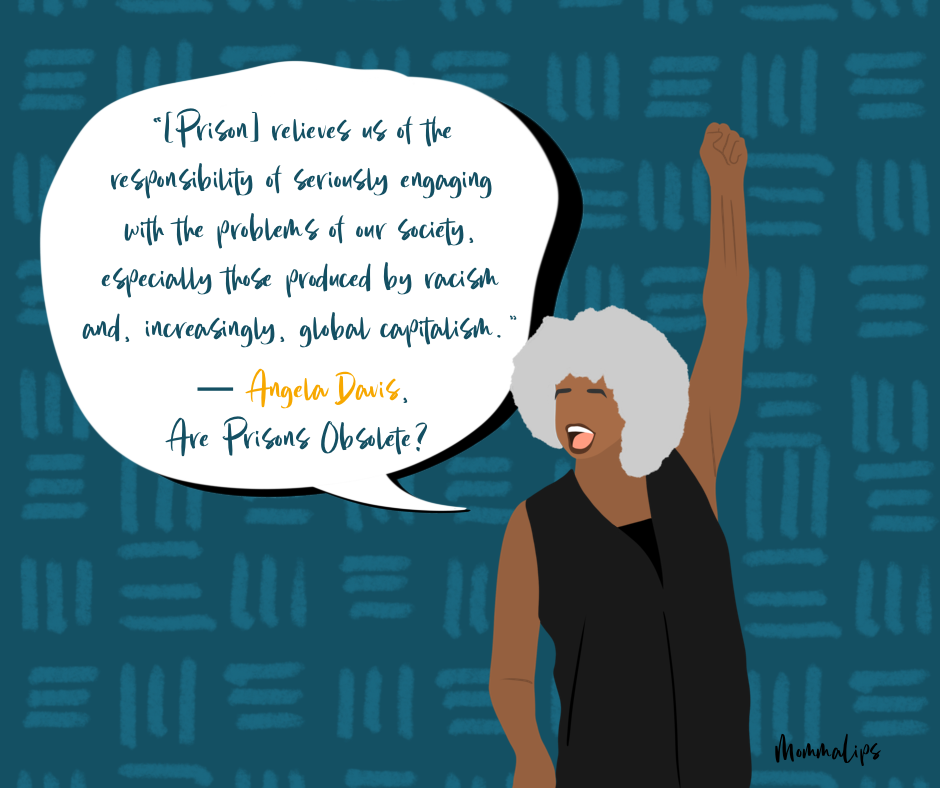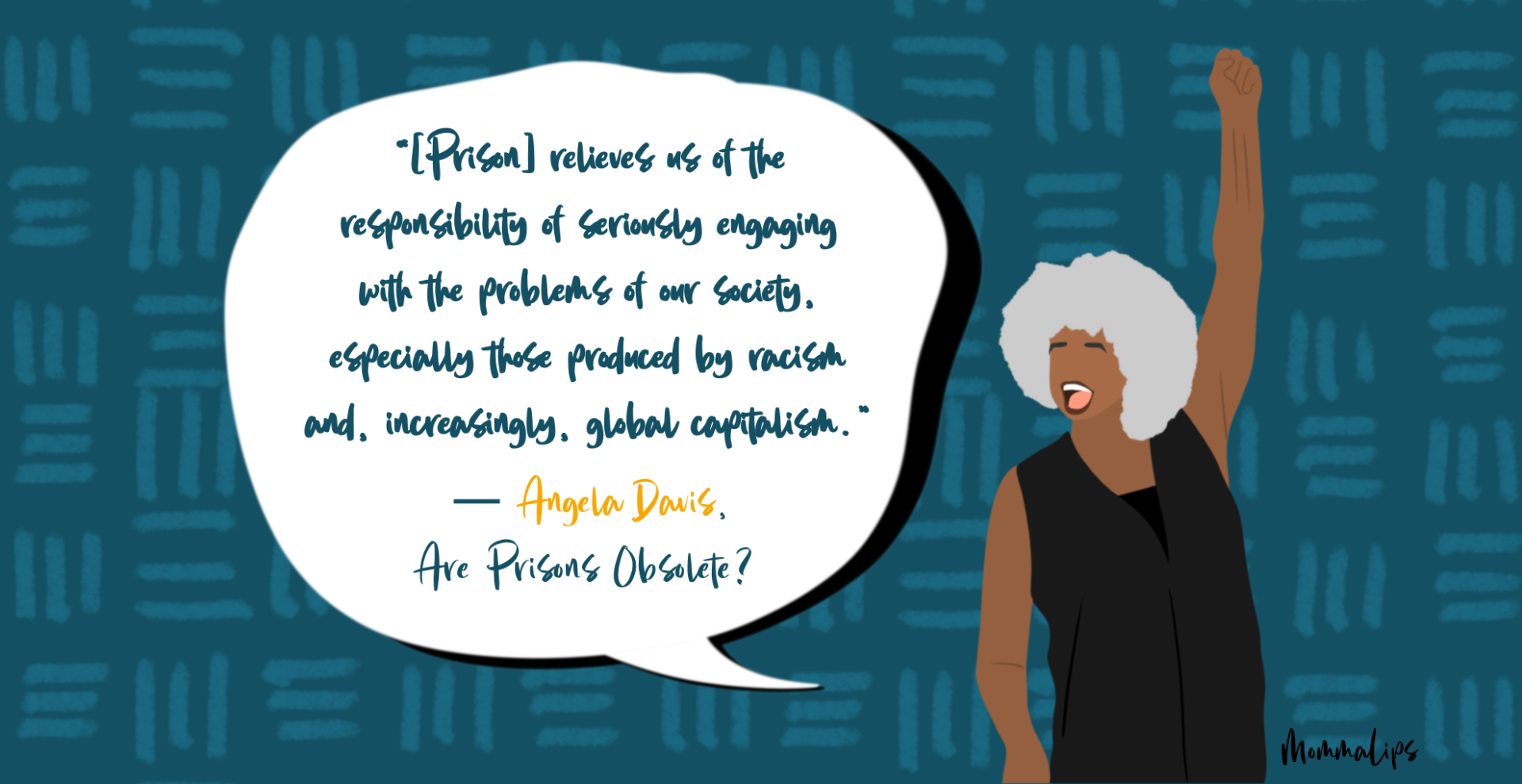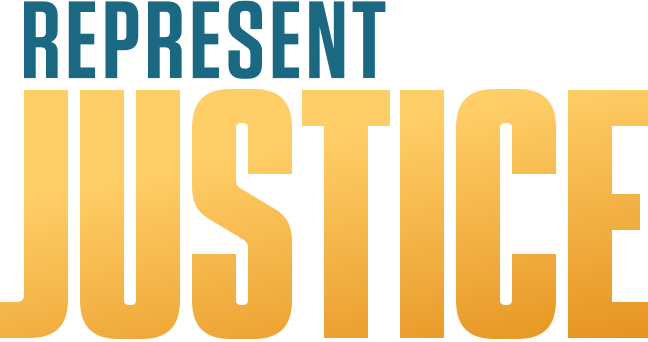Champions For Change: Angela Davis

 Art by Jessie Lipscomb at Momma Lips Draws
Art by Jessie Lipscomb at Momma Lips Draws
Angela Davis, born in 1944 in Birmingham, Alabama, was one of the loudest voices in justice reform long before it was at the forefront of the American political landscape. She has spent the better part of 50 years writing, speaking and teaching about abolishing the prison system, defunding the police, and focusing on helping — not punishing — people who commit crimes. She’s seen the conversation transition from “radical rhetoric” to millions of Americans chanting, marching and organizing around some of her core beliefs.
Her decades-old books Are Prisons Obsolete? and Women, Race and Class have been resurfacing on tons of required reading lists about how to be anti-racist and change the systems that were designed to oppress Black people for the last few centuries. Her beliefs on alternatives to prison, antiracism, feminism, and community organizing are deeply woven throughout many of the strategies activists are deploying today.
In Are Prisons Obsolete?, Davis asks “How can we take seriously strategies of restorative rather than exclusively punitive justice?” A question that so many Americans grapple with as millions of Black people are locked in institutions that profit immensely off of their labor and residency, and criminalizes their poverty, substance addictions and mental illness. Sadly, nearly two decades later, we still have to ask that same question.
Last summer, in the wake of the murders of Breonna Taylor, Ahmaud Aubery and George Floyd, Angela Davis took to the streets to support the demonstrations for change. She has been a vocal advocate for the modern movement. In a recent interview, Davis said, “I see these young people who are so intelligent, who have learned from the past and who have developed new ideas. I find myself learning a great deal from people who are 50 years younger than me. And to me, that’s exciting. That keeps me wanting to remain in the struggle.”
Rather than finger-wagging and “I told you so”-ing, Angela Davis chooses to create space for the work and ideas of organizers and activists today, citing how much she’s learned from the modern racial justice movements and encourages people to remain teachable. For someone who has been through so much, could we really hold it against her if she asked, “Where was this public outcry way back when?” For a Black woman who was raised in the heart of the Jim Crow South, familiar with the sounds of bombs and the routine violence Black people faced, her angst would be justified.
Davis was fired from her job as a professor at UCLA for her political ideologies, her incarceration spurned a cultural movement, her beliefs cast aside as millions of people who look like her are locked away, yet still, she chooses to embrace the fight.
So we celebrate Ms. Davis.
We’re grateful for her voice, her passion, and the way her work has inspired a lot of what we do at Represent Justice. 18 years ago, she asked, “How can we imagine a society in which race and class are not primary determinants of punishment? Or one in which punishment itself is no longer the central concern in the making of justice?” Today, we’re fighting for answers, answers that would go a long way toward ending mass incarceration.
Resources
Text:
- Are Prisons Obsolete?
- Women, Race & Class
- Freedom is a Constant Struggle: Ferguson, Palestine, and the Foundations of a Movement
Video:
Documentary: The Black Power Mixtape
Democracy Now!: Abolishing police is not just about dismantling it’s also about building up (2020)
AJ+: Here are 5 things you should know about the civil rights icon
